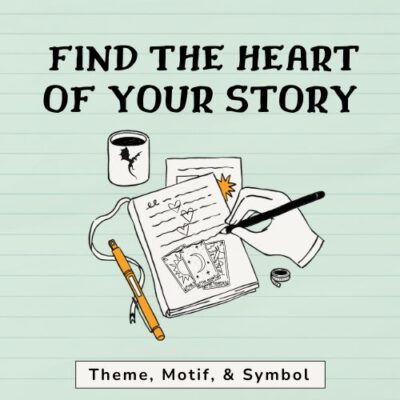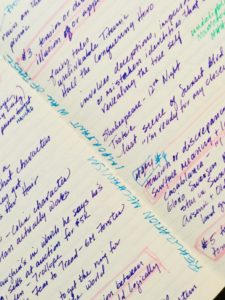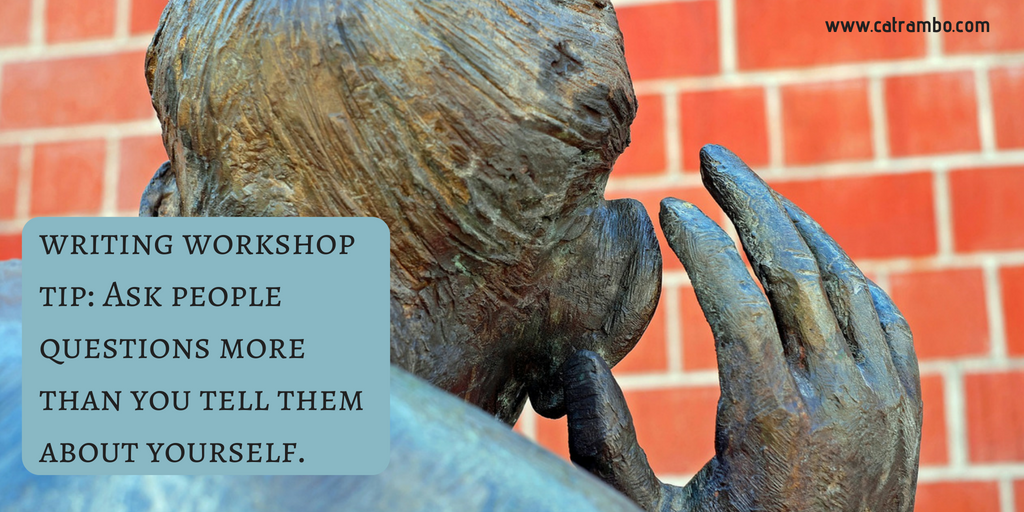This year I’ll be alternating two months of offering classes followed by two months of focusing on other work. In theory this should have been Jan-Feb, but it’s more like Feb edging into March. After that the next round will be May-June, and then September-October. I am also doing some price raising, reasoning that since I haven’t done it since the school started fifteen years ago, it’s a bit overdue. As always, there will be plenty of Plunkett scholarships.
I’m pleased to say we’re moving ahead on the next Wayward Wormhole, and 60% of our faculty is locked in so far. I hope to make an announcement about that soon.
Writing Short Stories Multi-Session Workshop
I will be offering a 6 week session of my writing short stories workshop on Saturdays, 12:30-3:00 PM Eastern time, starting February 3, 2024 and going through March 9.
In these six sessions, we will cover plot and story structure, character, world-building, style and technique, and how to move forward to begin (or continue) selling short stories. Each class will consist of lecture, discussion, and writing exercises for the first half and then turn to a critique of each other’s work. Students are expected to turn in at least one story for workshopping as well as critiquing each other’s stories.
To apply, please mail cat@kittywumpus.net a 1000 word writing sample (does not need to be a complete piece) as well as a brief (1-3 paragraph) statement about why you’d like to take the class. If accepted, the cost is $400 for Patreon supporters and other Rambo Academy community members; otherwise $500. There will be three Plunkett scholarships.
Single Session Workshops
Cost is $89 for Patreon supporters, otherwise $119. To register mail cat@kittywumpus.net with the name of the class and how you’d like to pay (Venmo, Paypal, check, something else.) There are three Plunkett scholarships in each class.
SCHEDULE
February 4, 12:30-2:30 PM Eastern Time
Replying to Other Stories with Cat Rambo
Stories shape writers, who spend part of their writing replying to, refuting, celebrating, and exploring those texts. Some stories have inspired plenty, such as Godwin’s “The Cold Equations,” Tiptree’s “The Women Men Don’t See,” or Le Guin’s “Those Who Walk Away from Omelas.” How do you draw on these stories without plagiarizing or leaning too heavily on a reader’s understanding of them? How do you figure out the stories that have inspired you, and how do you use them to make your own?
Join Cat for a workshop in which we’ll talk, listen, and exercise what we’ve learned in order to come away with useful tools as well as a list of possible story ideas and tips on which markets may find such stories appealing.
February 4, 4-6 PM Eastern Time
Generation Upon Generation: Writing Families with Cat Rambo
Almost every character has a family, one that has shaped their psyche deeply. How do you write characters in a way that demonstrates the complexities of family relationships and power struggles? How do you show the interactions between the generations and how they clash and complement each other?
Join Cat for a workshop in which we’ll talk, listen, and exercise what we’ve learned in order to come away from this class with a greater understanding of how to write family relationships, including practical tips, techniques, and exercises.
February 11, 12:30-2:30 PM Eastern time
Project Management for Creatives with Jennifer Brozek
How do you stay on top of the daily demands of being a writer? How do you plan — and carry out that plan — for a novel? How do you make sure one aspect of writing doesn’t swallow up all the rest? Basically, how can a writer stay in control of the daily chaos of existence even when you have multiple projects going at once?
Join Jennifer Brozek for a workshop about how to create a plan that helps you get where you want to go and how to do it without burning out.
February 11, 4-6 PM Eastern time
Creating and Updating Your Newsletter with Cat Rambo
With social media falling apart, more and more writers are returning to newsletters. How do you get started putting out a newsletter? What should – and shouldn’t – you include? What platforms are available, and are they worth paying for? Where do you find interesting visual images to use in your newsletter? How do you go about getting more subscribers?
You will come away from this class with a plan for starting (or restarting) your newsletter and consistently sending it out with interesting content that helps you sell books.
February 18, 4-6 PM Eastern
Rosemary Claire Smith – The Art of the Book Review
Some avid readers want to become reviewers, talking about the fiction they love — and sometimes hate. How do you go about creating a book review that is fair, interesting, and spoiler free? Should you post reviews on platforms like GoodReads and LibraryThing? Where else might you publish such pieces apart from your own blog? Is it possible to get paid for reviews? How do you obtain advance readers copies before books are published? Who does those anonymous reviews in Publishers Weekly?
Join Rosemary Claire Smith to talk about the time-honored art of the book review, and its promises and pitfalls.
February 25, 12:30-2:30 PM Eastern time
Beats, Chapters and Scenes: Ins and Outs of Story Units with Cat Rambo
What’s the difference between a chapter and scene, and at what point in the process do you need to worry about it? What are story beats and how can you use them to move the story along and keeping it emotionally engaging for the reader? Is there a maximum or minimum length for any of these things? Do you even need to think about them, or will you just hamper the writing flow by doing so?
Join Cat Rambo for a workshop in which they teach you how to use story units to their best effect.
March 3, 12:30-2:30 PM Eastern time
Dial Up Your Dialogue with Cat Rambo
Want to make your dialogue more interesting, intriguing, and indicative of character behavior? How do you know to leave in and leave out? How can you use dialogue to successfully deliver vital information? How do you make characters distinctive through their voices?
Join Cat Rambo for a workshop in which they teach you the ins and outs of dialogue.
March 3, 4-6 PM Eastern time
Rewriting and Editing Short Stories with Cat Rambo
Students have found that learning to trust their editing skills has made them more productive when producing early drafts. This class combines lecture, discussion, and in class exercise to help you develop a rewriting practice tailored to your own particular strengths and weaknesses as well as one that lets you know when a story is ready for submission. Topics include how to edit at both the sentence and story level, working well with writers/editors, considerations when writing for anthologies or for franchises, and how to finally let go of a piece and get it out there.
March 10, 12:30-2:30 PM Eastern time
Money Management for Creatives with Jennifer Brozek
Money makes the world go round, and in today’s society your dollar has to stretch farther than it has before. In Money Management for Creatives, Jennifer teaches core fundamentals of money management, debt reducing techniques, and an understanding of how money awareness can work for you. The class includes hands-on tasks, examples of the techniques used, and a discussion about the emotions of dealing with money.
Join Jennifer for a session in which she teaches you how to make the most of your money while handling the often erratic flow of writing income.







